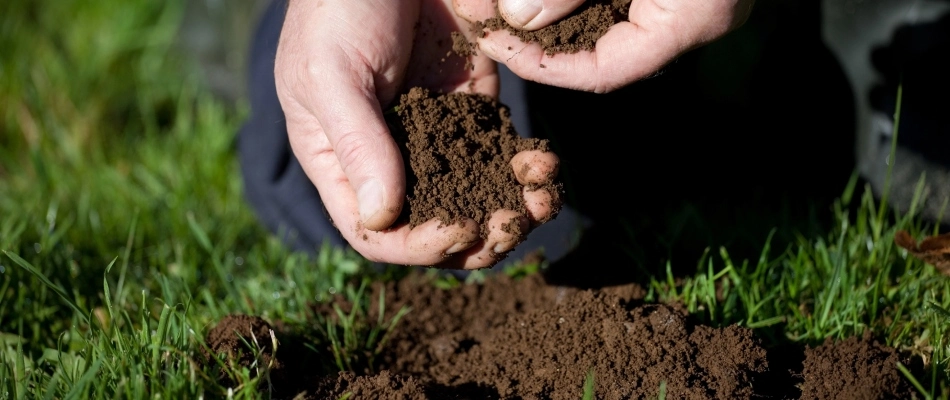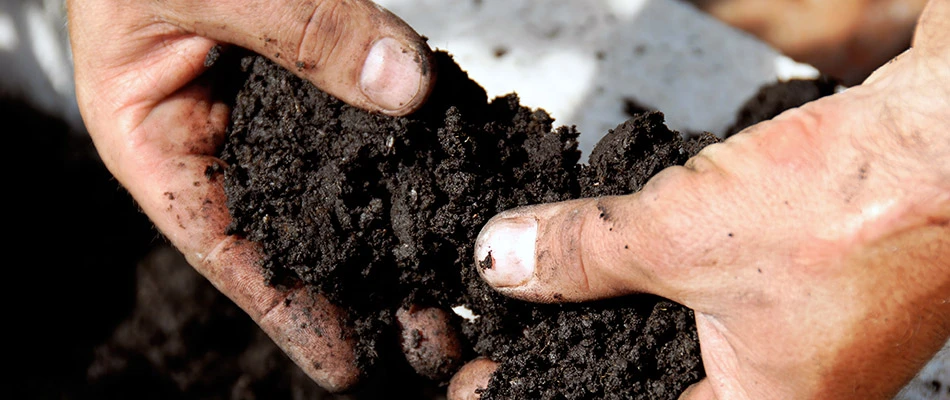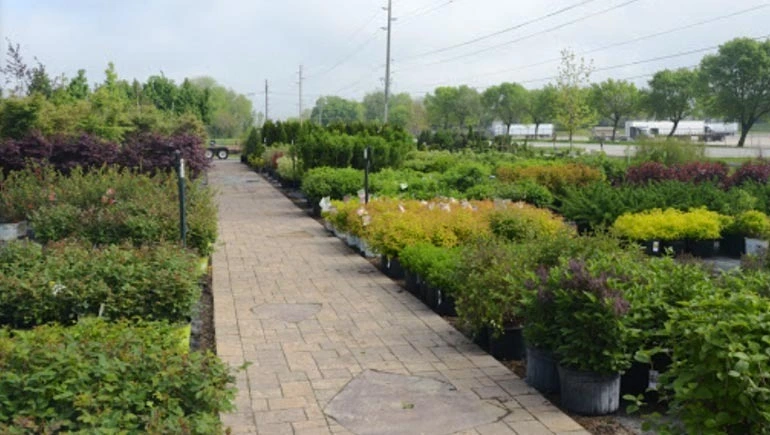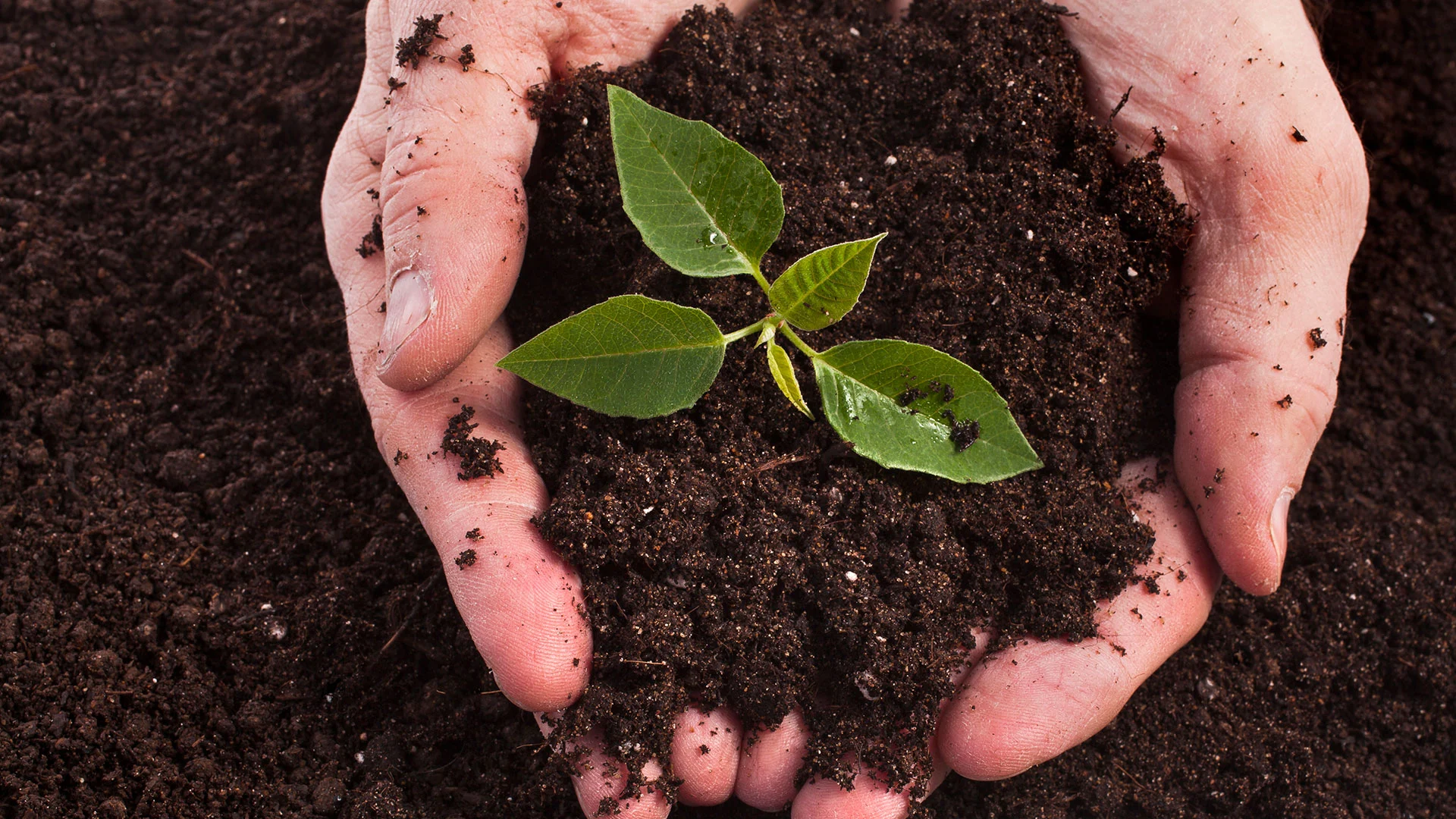Beneath your healthy and vibrant grass is the soil that holds the roots and supports your turf. Soil is the layer in the ground where plants grow and thrive. There are many different soil types, including sand, silt, and clay. Here in Iowa, we have a combination of all 3 soil types. Each has varying drainage capabilities and nutrient compositions, which is why it is so important to regularly test your soil to find out what it needs to help your grass thrive. Learn more about the earth below your turf and its composition so you can help reinforce its ability to nurture your grass.
What exactly is soil?

Soil is the material found on the earth's immediate surface where plant life can grow. It is the ideal material for plants as it is composed of minerals, organic matter, water, air, and decomposing organisms. When broken down, the minerals in the soil are usually a significant contributor to the soil texture. The soil's organic matter usually indicates soil quality.
The 3 Main Soil Types: Sand, Clay, & Silt
Soils form from the weathering of rocks. Many factors contribute to different soil types, including the original rock form, climate, terrain, and humans. These various factors interact with each other over time, forming these types of soil:
- Sandy Soil - Sand is the soil type with the largest particles. Sand is not ideal for plant growth, so you will need some soil amendments if you are planning on using sandy soil for growing plants. However, the benefits of sandy soil are that it is lightweight and isn't as prone to compaction when compared to other soil types.
- Clay Soil - This soil type has the smallest particles. Clay retains a lot of moisture, making this type of soil very drought-tolerant. It also has great nutrient density.
- Silt Soil - Silt soil holds and retains water well. It's also rich in nutrients, making this soil type great for your grass.
The state soil here in Iowa is Tama, which is a combination of the 3 main types of soil.
Soil testing tells you everything you need to know about what your soil needs to help your grass thrive.

Your soil holds essential nutrients your grass needs to flourish. However, rainfall and other elements may alter soil composition, which may affect grass growth. A soil test will tell you the health and fertility of your soil, so you can take action and improve any deficiencies in the soil. Testing your soil will tell you these things:
- Soil pH - To grow and nurture a healthy lawn, a balanced soil pH is necessary. Soil tests tell you the ground's acidity and alkalinity, both of which are vital in producing good crops and robust turf.
- Nutrient analysis - Nutrients in the soil can decrease over time due to several factors. Testing the soil determines deficient nutrients, like nitrogen, phosphorus, potassium, calcium, and magnesium.
After you know exactly what your soil is lacking, you can make a plan with your lawn care professional that will replenish missing nutrients and bring your soil's pH back to the ideal level.
Figure out what's missing in your soil - contact our team today to schedule a soil test!
The health of your soil is one of the most important aspects of growing strong turf. Because your soil holds essential nutrients and absorbs water, air, and sunlight, keeping the soil in tiptop shape should be your top priority when it comes to lawn care. Our team at A+ Lawn & Landscape offers soil testing so that you are able to pinpoint exactly what your soil needs. We provide our services to properties in Des Moines, West Des Moines, and Ankeny, IA, as well as nearby areas. Call (515) 289-2020 today to schedule a soil test.





Comments (0)
Thanks for your comment!
Thanks for your feedback! Your comments have been successfully submitted! Please note, all comments require admin approval prior to display.
Error submitting comment!
There is a problem with your comment, please see below and try again.